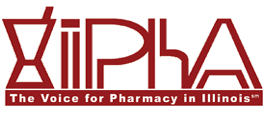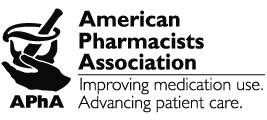How Can Pharmacies Prepare for Medicare/Medicaid Audits?
 Pharmacies play a crucial role in the healthcare system, providing essential medications and other products to patients. Because of the responsibilities pharmacies have toward their patients, they are subject to strict regulations. Failure to follow these regulations could affect a pharmacy’s ability to continue providing services to patients through Medicare or Medicaid.
Pharmacies play a crucial role in the healthcare system, providing essential medications and other products to patients. Because of the responsibilities pharmacies have toward their patients, they are subject to strict regulations. Failure to follow these regulations could affect a pharmacy’s ability to continue providing services to patients through Medicare or Medicaid.
The Center for Medicare/Medicaid Services (CMS) regularly conducts audits of pharmacies to ensure that they are in compliance with the applicable regulations. Preparing for these audits is essential for pharmacies, since it can ensure that they will be able to avoid potential penalties that could limit the patients they can serve. An experienced attorney can help a pharmacy navigate these regulatory challenges and ensure that it is fully prepared for audits.
Office Audits vs. Field Audits
Understanding the types of audits that a pharmacy may face is the first step in preparation. There are two primary types of audits: office audits and field audits. Office audits are conducted remotely, and they typically involve the review of documentation submitted by the pharmacy. Auditors will request specific records and documents, which the pharmacy must provide within a set timeframe. These audits are generally less invasive than field audits, and they focus on verifying compliance through paperwork.
Field audits, on the other hand, are conducted on-site at the pharmacy. Auditors will visit the pharmacy to review records, observe operations, and interview staff. Field audits are more comprehensive, and they can be more disruptive to a pharmacy’s daily operations. They provide auditors with a firsthand look at the pharmacy's practices and procedures.
Steps to Prepare for a Medicare/Medicaid Audit
Preparation is key to successfully navigating a Medicare/Medicaid audit. Here are the essential steps a pharmacy can take to address potential audit issues:
-
Maintain well-organized records: Accurate records are the cornerstone of a successful audit. Pharmacies should ensure that all documentation, including prescription records, billing information, and patient data, is up-to-date and easily accessible. Implementing a robust electronic health record (EHR) system can help streamline record-keeping and improve accuracy.
-
Demonstrate proper security procedures: Pharmacies must show that they have implemented appropriate measures to protect sensitive patient information and prevent the theft or misuse of controlled substances. Medications must be stored in locked, secure areas, and access should be limited to authorized personnel only. Cybersecurity measures should also be used to protect electronic records from unauthorized access and data breaches.
-
Detail drug disposal procedures: Proper disposal of expired or unused medications is a critical compliance issue. A pharmacy should have clear, documented procedures, following federal and state guidelines for drug disposal, and keeping detailed records of the dates, quantities, and methods used.
-
Provide employees with proper training: Employee training is vital for ensuring compliance with Medicare and Medicaid regulations. A pharmacy should conduct regular training sessions on regulatory requirements, proper procedures, and compliance best practices. Records of all training activities should be maintained, including attendance and topics covered.
-
Meet proper cleanliness and safety standards: Maintaining a clean and safe environment is essential for compliance and patient safety. A pharmacy should conduct regular inspections and implement and document strict cleaning protocols for all areas of the pharmacy. All safety measures, such as fire extinguishers and emergency exits, should be in place and functioning properly.
Contact Our Illinois Pharmacy Audit Lawyer
Preparing for a Medicare/Medicaid audit can be a complex process. At The Law Offices of Joseph J. Bogdan, Inc., we have a comprehensive understanding of the issues addressed during these audits. Attorney Joseph Bogdan is a registered pharmacist with years of experience in pharmaceutical law. He can provide guidance on the steps pharmacies can take to maintain compliance and avoid potential issues related to licensing or insurance provider status. To arrange a free consultation, contact our Chicago Medicare/Medicaid audit attorney at 630-310-1267.














